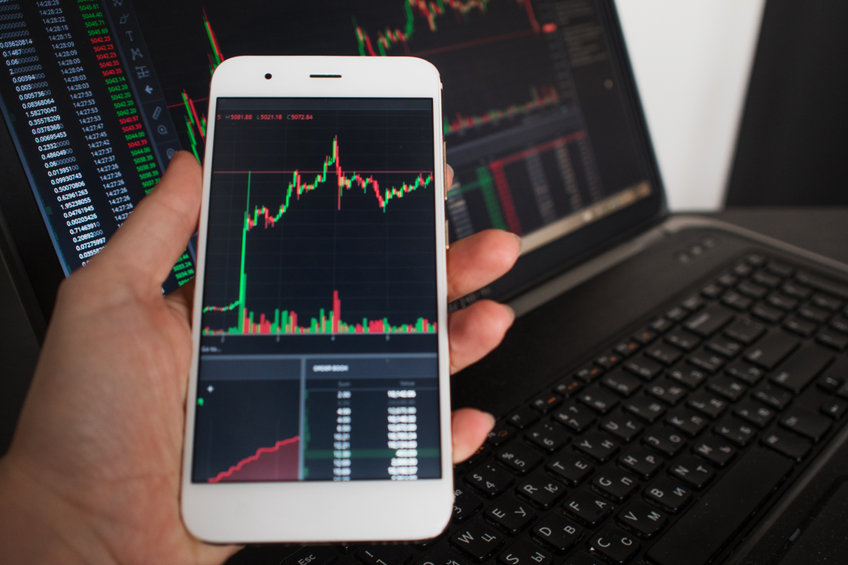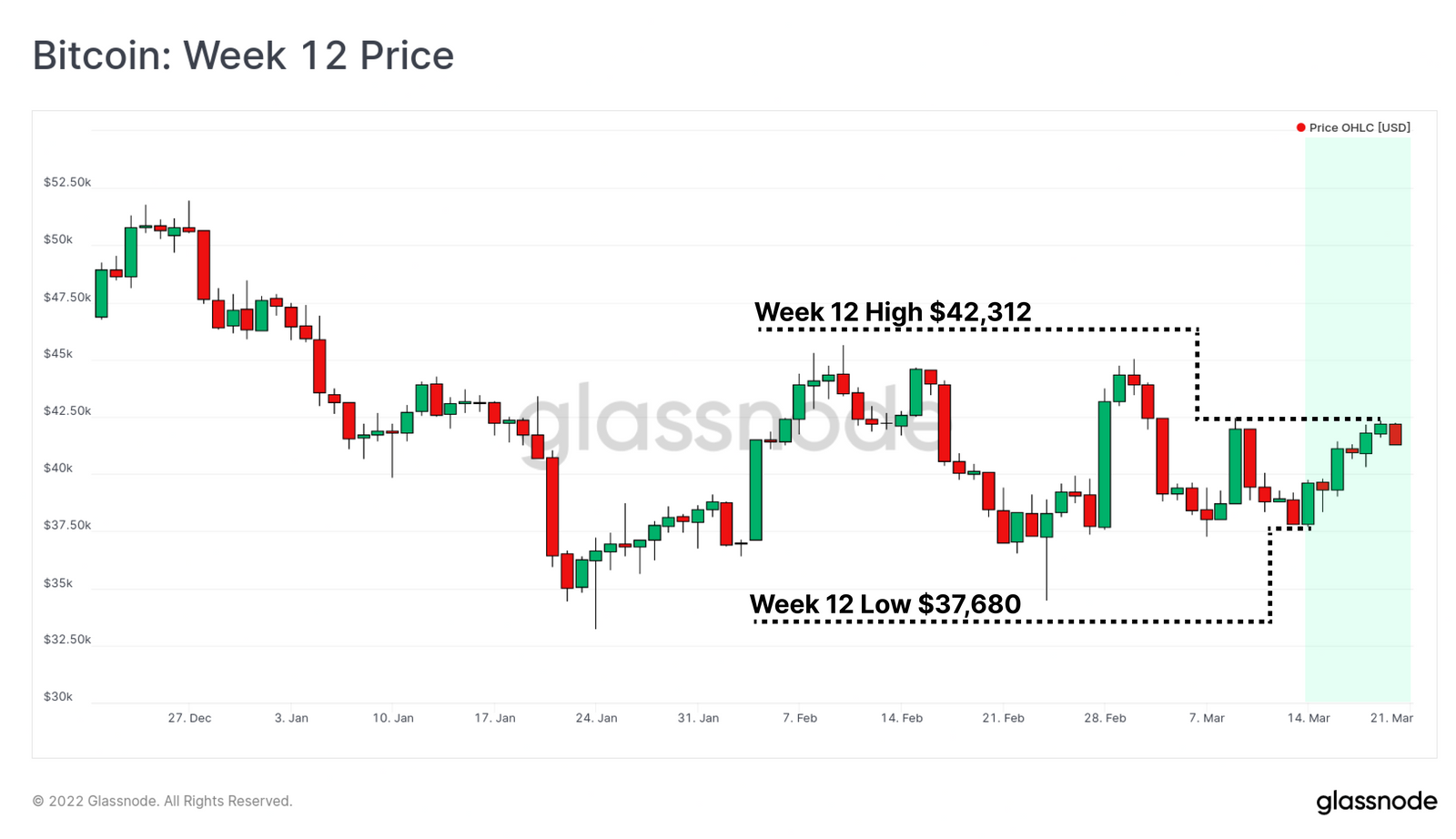
- Bitcoin has traded in a narrow range in the $37k-$42k region to suggest higher volatility lies on the horizon.
- BTC price is up 3.8% in the past 24 hours, currently around $42,625 per coin.
Bitcoin is likely to see increased volatility in the near term, analytics platform Glassnode said in its March 21 issue of “The Week On-chain” newsletter to investors.
According to the platform, the futures and options markets suggest higher inbound volatility, with the outlook putting it around the ‘horizon’. This is the case even as on-chain activity points to a bear stranglehold of the market that still pins upside sentiment across the crypto space.
BTC price recovery
Glassnode points to Bitcoin’s recent recovery as having come amid low volatility and widespread consolidation. Indeed, the BTC price traded towards $37,000 last week before recovering to the key resistance area around $42,300.
Monday saw the flagship cryptocurrency retrace from the weekend highs amid fresh sell-off pressure, tracking US equities following inflation comments from Federal Reserve Chair Jerome Powell.
In Tuesday deals, Bitcoin broke higher once again to touch highs around $43,080. However, it’s retreated to currently trade around $42,625 to see it remain within the key narrow range.
Chart showing recent range low and range high for BTC. Source: Glassnode.
Derivatives point to volatility on the horizon
According to Glassnode, Bitcoin’s continued movement within the narrow range has come amid a period of low volatility. The scenario implies higher odds of a buildup of fresh volatility, the firm noted.
After pricing in short term implied volatility around the Fed rate hikes, futures and options markets now suggest higher implied volatility.
“Options implied volatility is coming off relatively low levels between 60% and 80%, which have historically been followed by periods of extremely high volatility. Such high volatility events in 2021 include the May sell-off, the short-squeeze in July, and the October rally to ATHs,” the firm noted.
Note that traders usually look to implied volatility as a prediction of just how risky a trade is likely to be based on the potential for the market to move in either direction.

